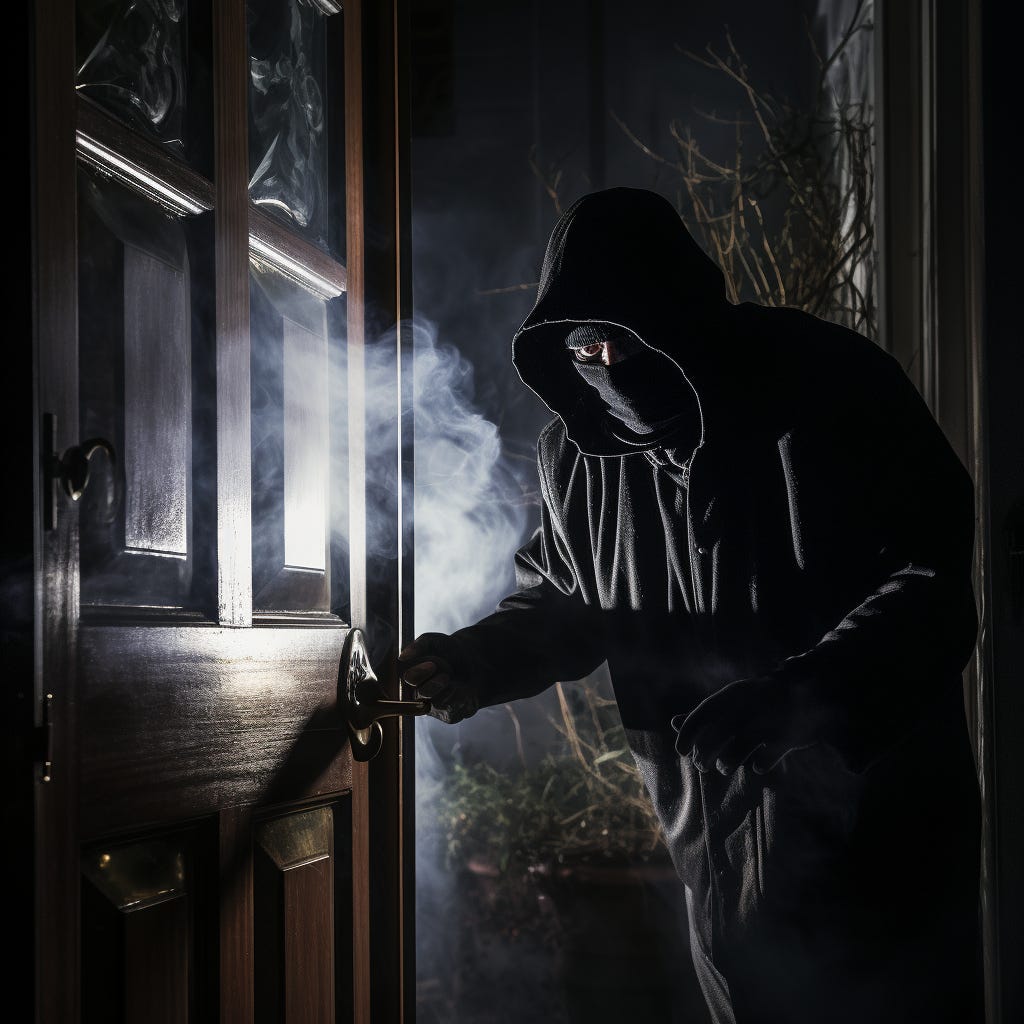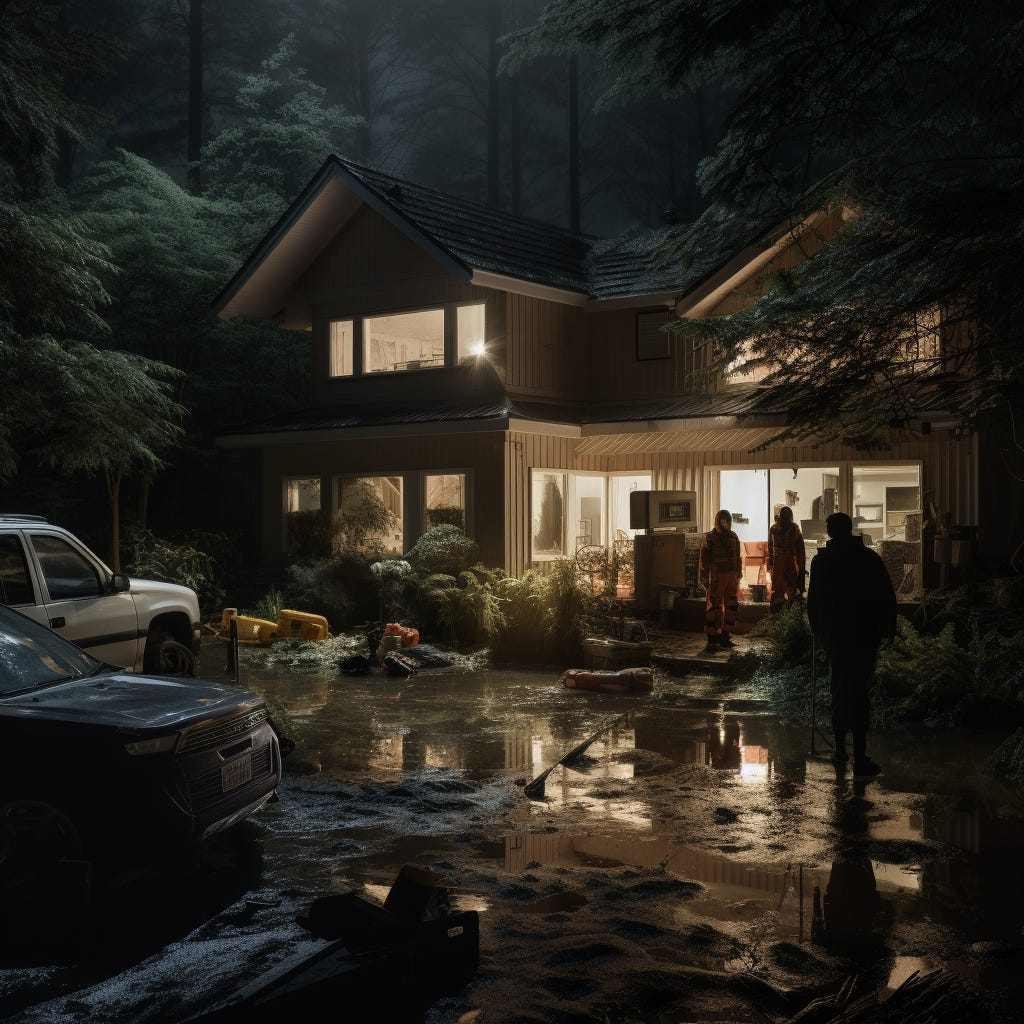Bitcoiners often talk about the “$5 wrench attack,” where someone threatens you with bodily harm to force you to reveal your private keys. This has been happening recently in Sweden, a country where your home address and your tax returns are public record (come on guys, really?). A simple solution to the $5 wrench attack is to use multi-signature cold storage with multiple physical locations for the keys and also be low key (pun intended) about your Bitcoin holdings. However, ensuring the safety of your home and loved ones should also be a top priority. Here's a basic tutorial on how to protect your home from potential intruders, with a focus on home security and personal safety:
1. Assess Your Home's Vulnerabilities:
Walk around your property and identify potential entry points such as doors, windows, and other accessible areas.
Consider the surrounding environment, including landscaping and lighting, which can deter intruders. Large, thorny rose bushes located near windows, for example, can be helpful to deter intruders.
2. Invest in Quality Locks:
Install strong, high-quality locks on all doors and windows.
Reinforce doors with deadbolt locks, and consider upgrading to smart locks for added security.
According to ADT, approximately 34% of burglars enter through the front door of a home, while 22% enter a home through the back door, making these the most common entry points for intruders. This was quite surprising to me. Dog doors can also be a way for burglars to make their way into your home if the door is large enough.
3. Secure Windows:
Install window locks and reinforce glass with security film to make it more difficult to break.
Consider using window bars or grilles, especially for basement or ground-level windows.
4. Outdoor Lighting:
Illuminate the exterior of your home with motion-activated lights to deter potential intruders.
Ensure that all entry points are well-lit at night.
5. Home Security Systems:
Install a reputable home security system with features like alarms, cameras, and monitoring services.
Display signs indicating that your home is protected by a security system.
6. Know Your Neighbors:
Establish a good relationship with your neighbors, as a strong sense of community can enhance overall safety.
Watch out for each other and share information about any suspicious activities.
7. Firearms:
A basic home security setup can include a shotgun and / or a handgun. For a more advanced defense setup, you may also want to consider an AR-15.
Prioritize safety and responsible gun ownership.
Store firearms and ammunition securely in a gun safe or lockbox, and educate all household members about firearm safety.
Consider getting a Concealed Carry Permit and get additional classroom and live fire training through that process.
Consider joining USCCA and get self-defense insurance, plus great learning and training resources
Practice “dry fire” and live fire at the range regularly.
Understand the laws where you live and how they relate to defending your home and when deadly force is permissible. An important concept is the Castle Doctrine:
The "Castle Doctrine" is a legal concept that generally allows individuals to use force, including deadly force, to defend themselves and their homes against intruders. The term "Castle Doctrine" is derived from the saying "a man's home is his castle," emphasizing the right of individuals to defend their homes as they would their castles. The specifics of Castle Doctrine laws can vary by jurisdiction, but there are some common principles:
No Duty to Retreat: In a typical self-defense situation, individuals are required to retreat from a threat if it is safe to do so before using force. The Castle Doctrine removes this duty to retreat when an individual is in their own home.
Use of Force: The doctrine often allows the use of force, including deadly force, if someone unlawfully enters an individual's home or, in some cases, their vehicle or place of work. The force used must be proportionate to the threat perceived.
Presumption of Fear: Castle Doctrine laws may include a presumption that a person in their home has a reasonable fear of imminent harm when an intruder enters unlawfully.
8. Home Defense Training:
Consider taking self-defense and home defense courses to prepare yourself and your family for potential threats.
Train regularly to maintain skills and confidence.
9. Emergency Communication Plan:
Develop a family emergency communication plan to ensure everyone knows what to do in case of an intrusion or other emergencies, including natural disasters.
Practice emergency drills to ensure everyone is familiar with the plan.
Have an emergency “go bag” ready - I got some a few years ago from the Red Cross that have everything you need for three days including food, water, first aid kit, radio, flashlight, personal hygiene and other emergency supplies. Ready America has some good kits as well.
10. Legal Considerations:
Familiarize yourself with local laws regarding home defense and firearms ownership.
Comply with all legal requirements, such as permits and storage regulations.
In the event of major social unrest, just focus on protecting your family and property. Law enforcement might not be much help in that scenario.
11. Home Insurance:
Ensure you have adequate home insurance coverage to protect your belongings in case of theft or damage.
12. Stay Informed:
Stay informed about local crime trends and adjust your security measures accordingly.
Consider joining community watch programs or online forums to share information with neighbors.
A well-rounded approach to home security includes a combination of physical barriers, technology, and community awareness to create a safer living environment.
Not financial or legal advice, for entertainment only, do your own homework. I hope you find this post useful as you chart your personal financial course and Build a Bitcoin Fortress in 2023.
Thank you for supporting my work. Always remember: freedom, health and positivity!
Please also check out my Bitcoin Fortress Podcast on YouTube here and on all your favorite streaming platforms. I do a weekly Bitcoin news update every week on current items of interest to the Bitcoin community, usually 30 to 60 minutes depending on the number of topics to cover. Please check it out if you haven’t already. Also now on Fountain, where you can earn Bitcoin just for listening to your favorite podcasts.
Follow me on Nostr:
npub122fpu8lwu2eu2zfmrymcfed9tfgeray5quj78jm6zavj78phnqdsu3v4h5
If you’re looking for more great Bitcoin signal, check out friend of the show Pleb Underground here.
Lightning tips appreciated here.









